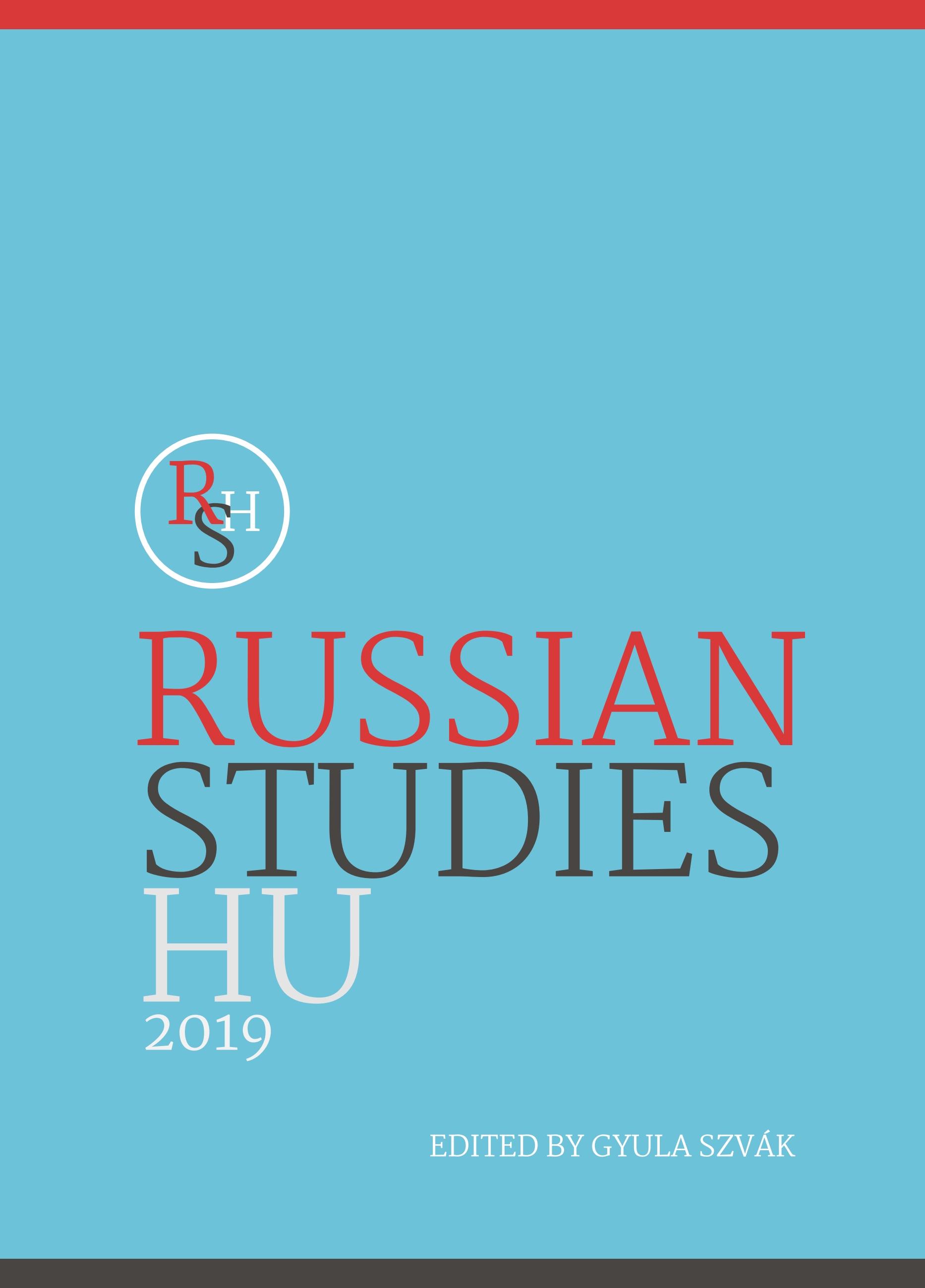Hősök és antihősök kapcsolatrendszere a klasszikus orosz irodalomban
Heroes and Anti-Heroes in Classic Russian Literature
Author(s): Ágnes DukkonSubject(s): Russian Literature
Published by: RussianStudiesHu
Keywords: hero; anti-hero; Pushkin; Dostoevsky; Bakhtin; existential philosophy; Chekhov
Summary/Abstract: This study deals with the main characters of the works of Karamzin, Pushkin, Lermontov, Gogol, Goncharov, Turgeniev, Dostoevsky, Tolstoi and Chekhov. First, it attempts to define the meaning of the concepts of ‘hero’ and ‘anti-hero’, drawing from the Poetics of Aristotle and the ideas of Goethe and Bakhtin. After that the paper examines the figures of the above mentioned authors. The objective of the inquiry is not to create a typology of literary heroes, or to elaborate theoretical conceptions. It focuses on the question of how these heroes are connected with their cultural environment, and what kind of meanings they communicate to the recipients. The main conclusion of this study is that at the beginning (from Karamzin up to Chekhov) the theme of the ‘hero’ and ‘anti-hero’ in the Russian literature is in close connection with the problem of moral, which step by step will combine with the sociological, psychological and metaphysical meanings. At the end of the 19th century, in Chekhov’ works we can detect the influence of existential philosophy. The specificity of these great Russian literary characters is that they point beyond their own (historical) time, giving eternal lessons for humankind.
Journal: RussianStudiesHu
- Issue Year: 2019
- Issue No: 1
- Page Range: 177-208
- Page Count: 37
- Language: Hungarian

